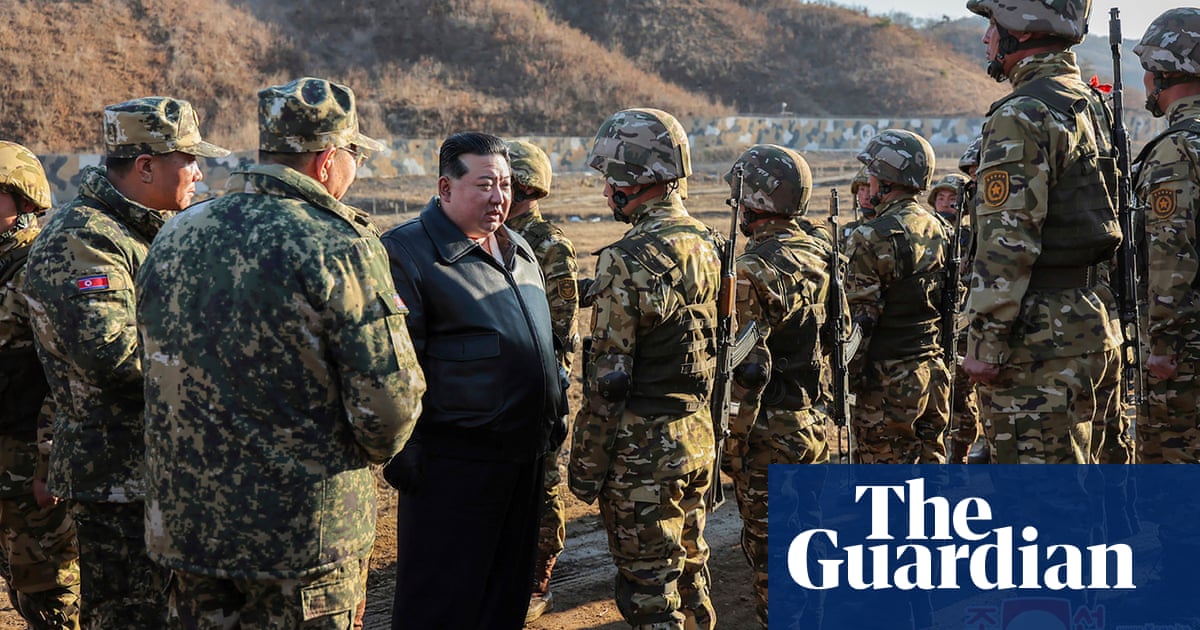 |
|
The capture of two North Korean soldiers by Ukrainian forces has ignited a complex geopolitical dilemma, raising questions about international law, humanitarian obligations, and the precarious lives of these individuals caught in the crossfire of the ongoing war in Ukraine. President Zelenskyy's statement regarding the potential exchange of these soldiers for Ukrainian prisoners of war held by Russia introduces a crucial element of negotiation and strategic maneuvering. However, the caveat that alternative options exist for soldiers who do not wish to return to North Korea underscores the gravity of the situation and the potential for these individuals to become pawns in a larger geopolitical game. The interviews with the captured soldiers, revealing conflicting desires regarding repatriation, further complicate the matter, highlighting the personal anxieties and uncertainties faced by those directly involved. The differing statements, one expressing a desire to return to North Korea, the other initially wanting to stay in Ukraine but later indicating a willingness to return 'if required', point to the immense pressures these soldiers are under. This ambiguity adds another layer of complexity to the decision-making process for Ukraine and the international community.
The reported high casualty rate among North Korean troops fighting alongside Russian forces, as cited by South Korean MP Lee Seong-kweun, paints a grim picture of the conflict's human cost. The estimated 3,000 casualties, including deaths and injuries, represent a significant loss of life and highlight the scale of North Korea's covert involvement in the war. This involvement, though not officially acknowledged by either North Korea or Russia, has been inferred from intelligence reports and the capture of these soldiers. The fact that North Korea hasn't publicly acknowledged the presence of its troops in Ukraine raises questions about the nature of the agreement between Russia and North Korea and the potential consequences for the soldiers if they return home. The secrecy surrounding the deployment underscores the sensitivity of the situation for the North Korean regime, highlighting the potential dangers these soldiers face if they are repatriated.
South Korea's cautious stance, emphasizing international law and consultations with relevant countries, reflects the delicate balance it must maintain. Its constitutional position, which legally considers all North Koreans as its citizens, places a unique obligation on South Korea to protect and potentially accept these defectors. The South Korean government's commitment to prioritizing the soldiers' wishes, including the possibility of defection to South Korea, is a testament to its humanitarian concerns and its willingness to actively engage with Ukraine and Russia to determine the best course of action. This position is not without its potential risks, however. The potential for these soldiers to provide valuable intelligence regarding North Korea's involvement in the Ukraine war presents a significant incentive for South Korea. Their defection would also be a significant propaganda victory for the South, demonstrating the stark contrast between life under the Kim regime and life in a free and democratic society.
The potential dangers faced by the soldiers upon repatriation to North Korea are substantial. The risk of imprisonment, torture, or even death for perceived disloyalty or failure to follow orders, including the reported pressure to commit suicide or self-detonate before capture, presents a stark contrast to the potential for a new life in South Korea. The fact that their faces have already been broadcast globally further complicates the situation, potentially making them targets for the North Korean regime's efforts to maintain control and silence. This creates a challenging moral and ethical dilemma for Ukraine and the international community. The uncertainty surrounding whether North Korea will even claim responsibility for these soldiers, given Moscow and Pyongyang’s official denial of their deployment, adds further complexity to the situation, leaving open the possibility of Russia claiming them and handing them over to North Korea as part of a prisoner exchange.
Legal analyst Ethan Hee-Seok Shin's perspective underscores the importance of respecting the soldiers' free will and avoiding forced repatriation. He rightly emphasizes that repatriation against their will would violate humanitarian principles and contradict Ukraine's stated commitment to fighting for freedom and democracy. The international community's role in urging Ukraine to protect the soldiers' rights and ensure they are not forcibly returned is crucial in preventing a potential humanitarian crisis. Ultimately, the decision regarding the fate of these two North Korean soldiers is not merely a matter of military strategy or geopolitical maneuvering. It is a profound humanitarian issue that requires careful consideration of individual rights, international law, and the potential consequences for all parties involved. The choice between repatriation and defection carries weighty implications, shaping not only the lives of these two soldiers but also the broader narrative of the conflict and the geopolitical dynamics of the region.
Source: Repatriation or a life among ‘enemies’: what fate awaits the North Koreans captured by Ukraine?
